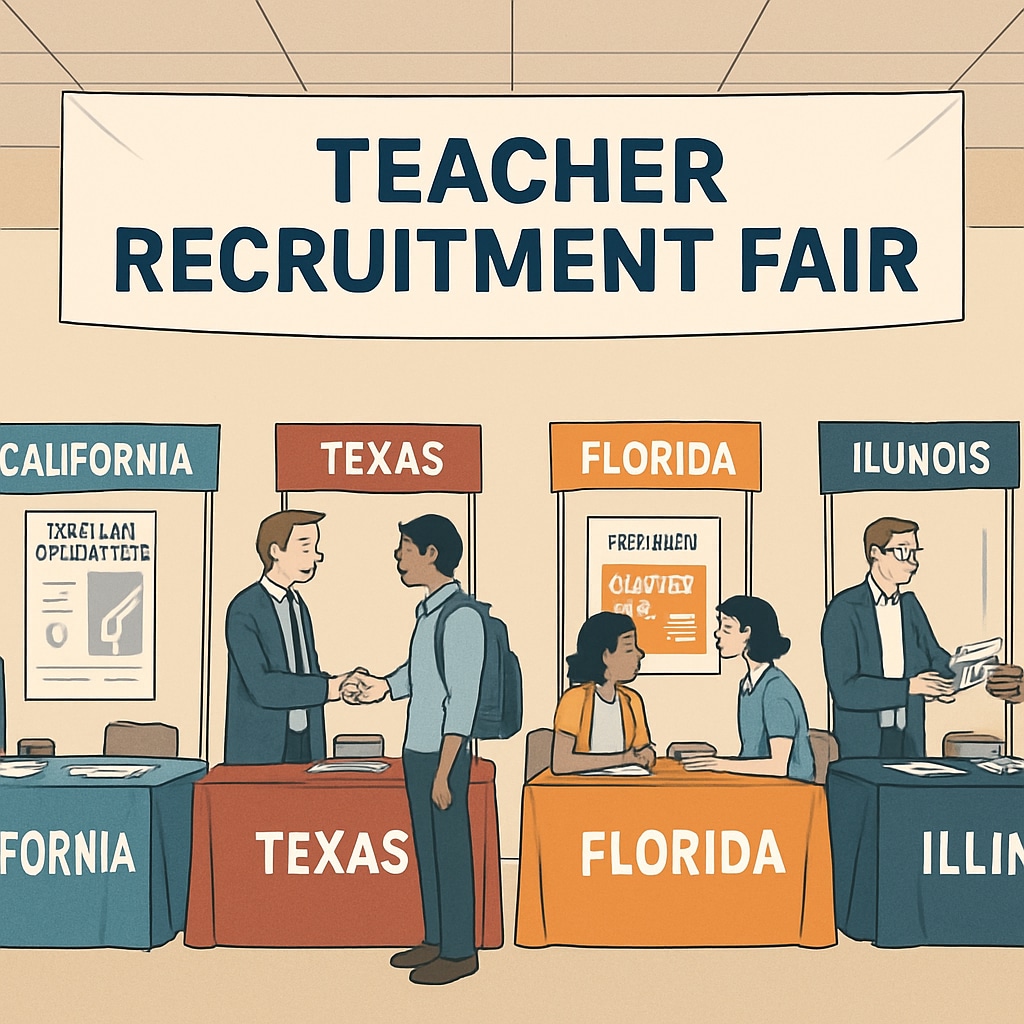Oklahoma’s recent decision to mandate political affiliation tests for out-of-state teacher applicants has ignited a heated debate on the intersection of education policy and political ideology. Critics argue that such a policy undermines academic freedom and the neutrality expected in K-12 education, while proponents claim it is a necessary step to combat what they term “radical ideologies” infiltrating classrooms. This article delves into the motivations behind the policy, its potential consequences, and the broader implications for the educational environment in the United States.

What Is the Motivation Behind Oklahoma’s Policy?
The introduction of political affiliation tests for teacher applicants in Oklahoma has been framed as a measure to protect students from exposure to “radical ideologies” in the classroom. Supporters of the policy argue that the education system has become increasingly politicized, with certain viewpoints dominating the curriculum. They believe this screening process will ensure that teachers adhere to what they describe as “traditional American values.”
However, opponents view this move as a veiled attempt to suppress diversity of thought and enforce a homogeneous political ideology. They argue that education should empower students to think critically and engage with a variety of perspectives, rather than limit their exposure to a singular narrative. Moreover, this policy raises questions about the criteria used to define “radical ideologies” and who gets to make that determination.
Potential Consequences for Teachers and Students
The implementation of political affiliation tests could have far-reaching implications for both educators and students. For teachers, this policy may discourage qualified professionals from applying for positions in Oklahoma, especially those who feel their personal beliefs could disqualify them. This could exacerbate existing teacher shortages, particularly in critical subject areas such as STEM and special education.
For students, the consequences are equally concerning. A politically homogenous teaching workforce may lead to a narrowing of perspectives presented in classrooms, limiting students’ ability to engage with diverse viewpoints. This shift could stifle critical thinking and creativity, skills that are essential for success in a globalized world.
- Teacher shortages in key subject areas may worsen.
- Students may face a less diverse educational experience.
- Public trust in the education system could erode further.

Broader Implications of Politicizing Education
The Oklahoma policy is part of a larger trend of increasing political influence in education. Across the United States, debates over curriculum content, book bans, and teacher training have become highly polarized. This politicization risks turning schools into battlegrounds for ideological conflicts, diverting attention from their primary mission: educating the next generation.
Research has consistently shown that a well-rounded education, free from political bias, is crucial for fostering informed and engaged citizens. Policies like Oklahoma’s not only threaten this ideal but also set a dangerous precedent for other states to follow suit. If education becomes a tool for political indoctrination, it undermines the democratic principles it is meant to uphold.
As a result, educators, policymakers, and communities must work together to ensure that schools remain spaces for learning and growth, not arenas for ideological warfare. Open dialogues and transparent decision-making processes can help strike a balance between respecting diverse viewpoints and maintaining educational standards.
Conclusion: Striking a Balance Between Freedom and Oversight
Oklahoma’s policy on political affiliation tests for teacher applicants has sparked a necessary conversation about the role of education in shaping societal values. While the intention to protect students from undue influence is commendable, the approach raises significant ethical and practical concerns. Policymakers must tread carefully to avoid undermining academic freedom and the educational neutrality that are essential for a thriving democracy.
Ultimately, the focus should remain on equipping students with the tools they need to navigate a complex and ever-changing world. This requires an education system that values diversity, critical thinking, and the free exchange of ideas, rather than one constrained by political litmus tests.
Readability guidance: This article uses short paragraphs and lists to summarize key points. It incorporates transition words to improve flow and maintains a balance between active and passive voice for clarity. Images are strategically placed to complement the text.


